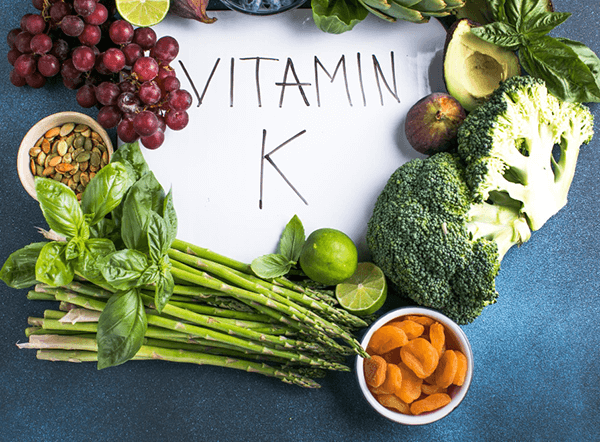- +033 2572 7171
- info@dhanvantary.com

4.5 Rating | 4500 Review

4.5 Rating | 4500 Review
Vitamin K is a fat-soluble vitamin that plays a crucial role in the process of blood clotting. Additionally, it contributes significantly to heart health and the maintenance of strong bones. Often referred to as "the forgotten vitamin," its numerous benefits are frequently overlooked. Rather than being a singular dietary supplement, it encompasses a group of compounds.

There are three distinct types of vitamin K, as outlined below:
This type is primarily sourced from plants, particularly green vegetables. It is absorbed directly into the liver, where it aids in the regulation of blood clotting.
Produced by bacteria residing in the gastrointestinal tract, this form of vitamin K is essential for maintaining the health of bones, tissues, and blood vessels.
This synthetic variant may pose a risk of toxicity.
Vitamin K can be found in the following foods:
Vitamin K deficiency is uncommon, typically resulting from impaired absorption of the vitamin, which may be linked to liver dysfunction or metabolic issues. The prevalent symptoms associated with vitamin K deficiency include:
Commonly referred to as the Clotting Vitamin, vitamin K plays a crucial role in the coagulation process. It is beneficial in various health conditions, including:
The recommended daily intake of vitamin K varies based on individual factors such as age, gender, and specific conditions like pregnancy, breastfeeding, or illness.
As a fat-soluble vitamin, vitamin K requires dietary fat for optimal absorption. Therefore, it is essential to include a small amount of fat in your diet. This not only aids in the absorption of vitamin K but also supports the absorption of vitamin D and plays a vital role in safeguarding the brain, nervous system, and endocrine system.
